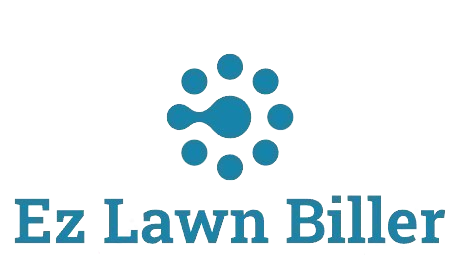Efficiently managing lawn operations is key to success. Discover how lean management can transform your lawn care business.
How to Implement Lean Management in Lawn Operations
Implementing lean management principles in lawn operations can significantly enhance efficiency, reduce waste, and improve customer satisfaction. In this blog post, we will explore the core concepts of lean management and provide practical steps to incorporate these strategies into your lawn care business. From streamlining your processes to enhancing service delivery, this guide offers actionable insights that can lead to substantial improvements in your operations.
Introduction
Lean management is a methodology that focuses on minimizing waste without sacrificing productivity. Originally developed in the manufacturing sector, lean principles have found their way into various industries, including lawn care. Given the competitive nature of the lawn care market, adopting lean management practices can help businesses streamline operations, reduce costs, and improve service quality. In this post, we will delve into the principles of lean management and how they can be effectively applied to lawn operations, ensuring your services are both efficient and effective.
Understanding Lean Principles
Lean management is rooted in several core principles aimed at enhancing efficiency and effectiveness. The first principle is the identification of value from the customer’s perspective. In lawn care, this means understanding what services your clients truly value—whether it’s timely lawn mowing, thorough fertilization, or personalized service. By identifying these elements, you can focus on delivering what matters most to your customers.
Another key principle is the elimination of waste, which can take many forms, such as excess inventory, unnecessary motion, or over-processing. For lawn care operations, this might involve streamlining schedules to avoid idle time between jobs or optimizing routes to reduce travel time. Statistical evidence supports the idea that reducing waste can significantly improve overall productivity, with studies suggesting that companies implementing lean practices can boost their efficiency by up to 30%.
Practical Steps to Implement Lean Management
To effectively implement lean management in your lawn operations, start by conducting a thorough assessment of your current processes. Map out each step involved in your service delivery, from client acquisition to service execution and billing. This visual representation will help identify bottlenecks and areas of waste that can be improved.
One way to visualize these processes is through a value stream map. This tool helps you see where value is added and where waste occurs. For example, if your team spends excessive time on paperwork, this could be a sign to integrate a lawn billing software like [EZ Lawn Biller](https://ezlawnbiller.com/). By automating billing and invoicing, you can free up valuable time for your staff to focus on service delivery rather than administrative tasks.
Engaging Your Team
Implementing lean management isn’t just a top-down approach; it requires the engagement and input of your entire team. Foster a culture of continuous improvement by encouraging employees to share their insights into inefficiencies they encounter in their daily tasks. Regularly scheduled meetings can provide a platform for discussing potential improvements and celebrating successes.
Training your employees on lean principles is equally important. Consider workshops or training sessions to familiarize your team with concepts such as the 5S system (Sort, Set in order, Shine, Standardize, Sustain), which promotes organization and efficiency in the workplace. A well-trained team is more likely to embrace lean initiatives and contribute to the overall success of the implementation.
Maximizing Resources
To ensure that your lawn care operations run smoothly, it’s essential to maximize the resources at your disposal. This involves not only optimizing human resources but also leveraging technology. Investing in a lawn service software can significantly enhance your operational efficiency. For instance, utilizing a lawn service app can help schedule appointments, track service history, and manage client communications seamlessly.
Moreover, consider using a lawn company computer program to assist with inventory management. By tracking supplies such as fertilizers, seeds, and equipment, you can reduce waste and avoid overstocking, which often leads to unnecessary expenses. The integration of technology in your operations can ultimately lead to better decision-making and cost savings.
Data-Driven Decision Making
Incorporating data-driven decision-making into your lawn care business can enhance your lean management efforts. By analyzing historical data on service performance, customer satisfaction, and financial metrics, you can identify trends and make informed choices about where to focus your improvement efforts.
Utilizing reporting tools available in service company software can help you visualize key performance indicators (KPIs). Track metrics such as customer retention rates, average response times, and service completion times to gauge the effectiveness of your lean initiatives. Regularly reviewing these metrics will allow you to make necessary adjustments and ensure that your operations remain aligned with your business goals.
Continuous Improvement
Lean management is not a one-time effort; it’s an ongoing journey of continuous improvement. Implementing a system for regular reviews and feedback can help ensure that your lawn operations remain efficient and effective over time. This might involve setting up monthly or quarterly reviews to assess your processes, outcomes, and employee feedback.
Encouraging a mindset of kaizen, or continuous improvement, among your staff can lead to innovative ideas that can further enhance operational efficiency. When employees feel empowered to make suggestions and improvements, they often take greater ownership of their work, leading to increased job satisfaction and better service delivery.
Case Study: Implementing Lean in Lawn Operations
A practical illustration of lean management in lawn care can be seen through a case study of a mid-sized lawn service provider that adopted these principles. Initially facing challenges with scheduling and high operational costs, the company implemented lean practices by mapping its service delivery process.
Through this assessment, the company identified redundant steps in its client onboarding process and unnecessary travel time between jobs. By utilizing a lawn billing software, they automated invoicing and payment processing, which not only sped up cash flow but also reduced paperwork. As a result, the company reported a 25% increase in service efficiency within the first six months of implementation.
Conclusion
In summary, implementing lean management in lawn operations can lead to significant improvements in efficiency, cost reduction, and customer satisfaction. By understanding and applying the core principles of lean, engaging your team, maximizing resources, and fostering a culture of continuous improvement, your lawn care business can thrive in an increasingly competitive market.
As you embark on this journey towards lean operations, remember that the goal is not just to eliminate waste but to create more value for your customers. Explore tools like [EZ Lawn Biller](https://ezlawnbiller.com/) to streamline your billing process and enhance your overall service delivery. The time to start implementing these strategies is now—focus on continuous improvement, and you will see the positive impact on your business.




